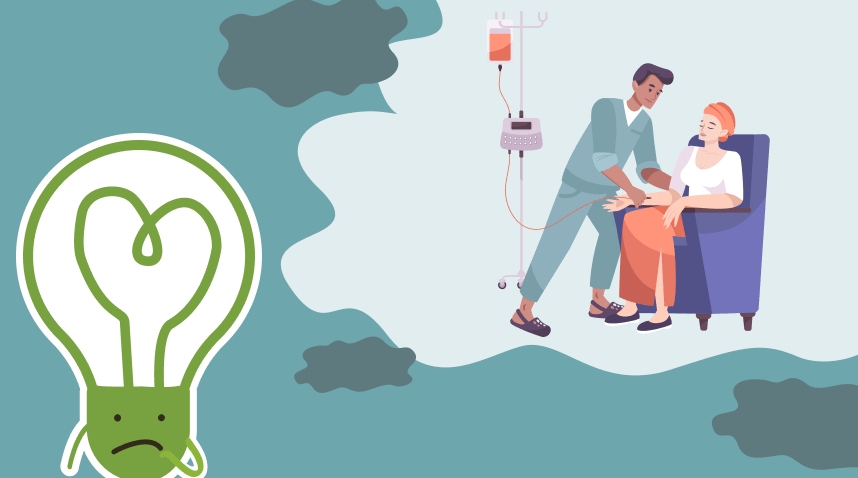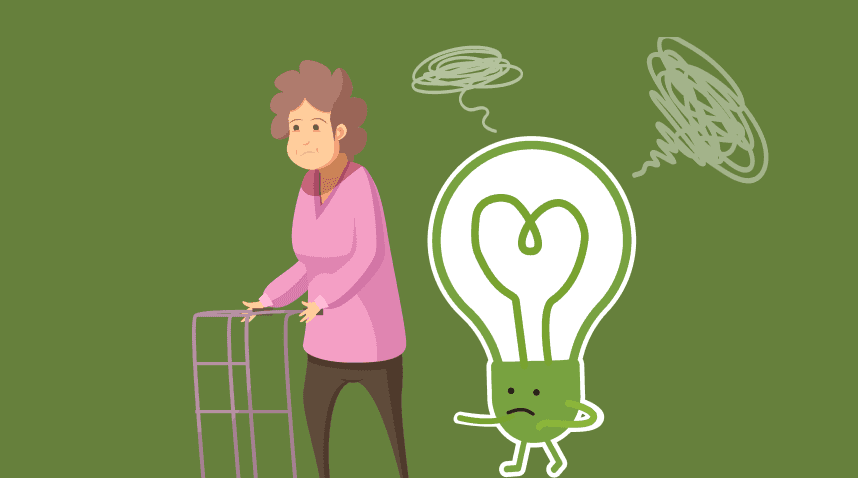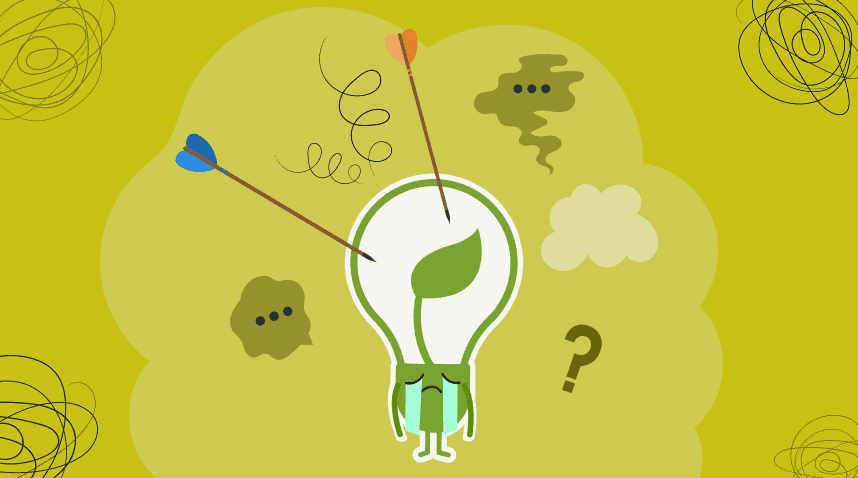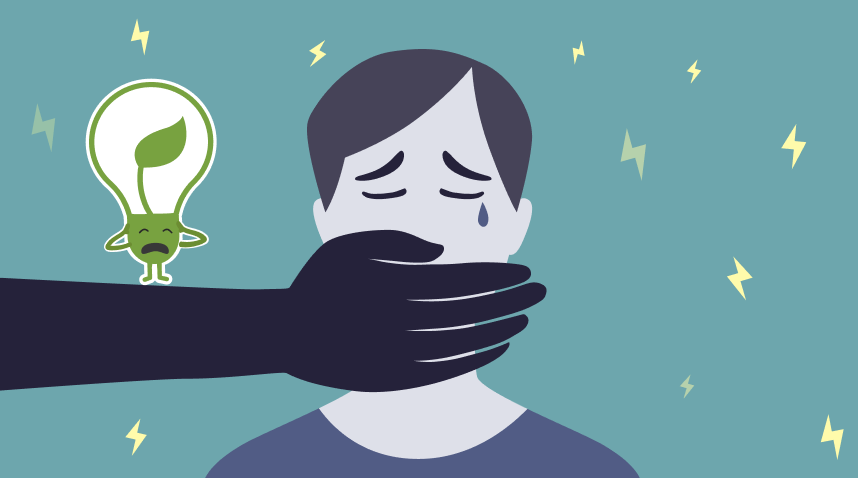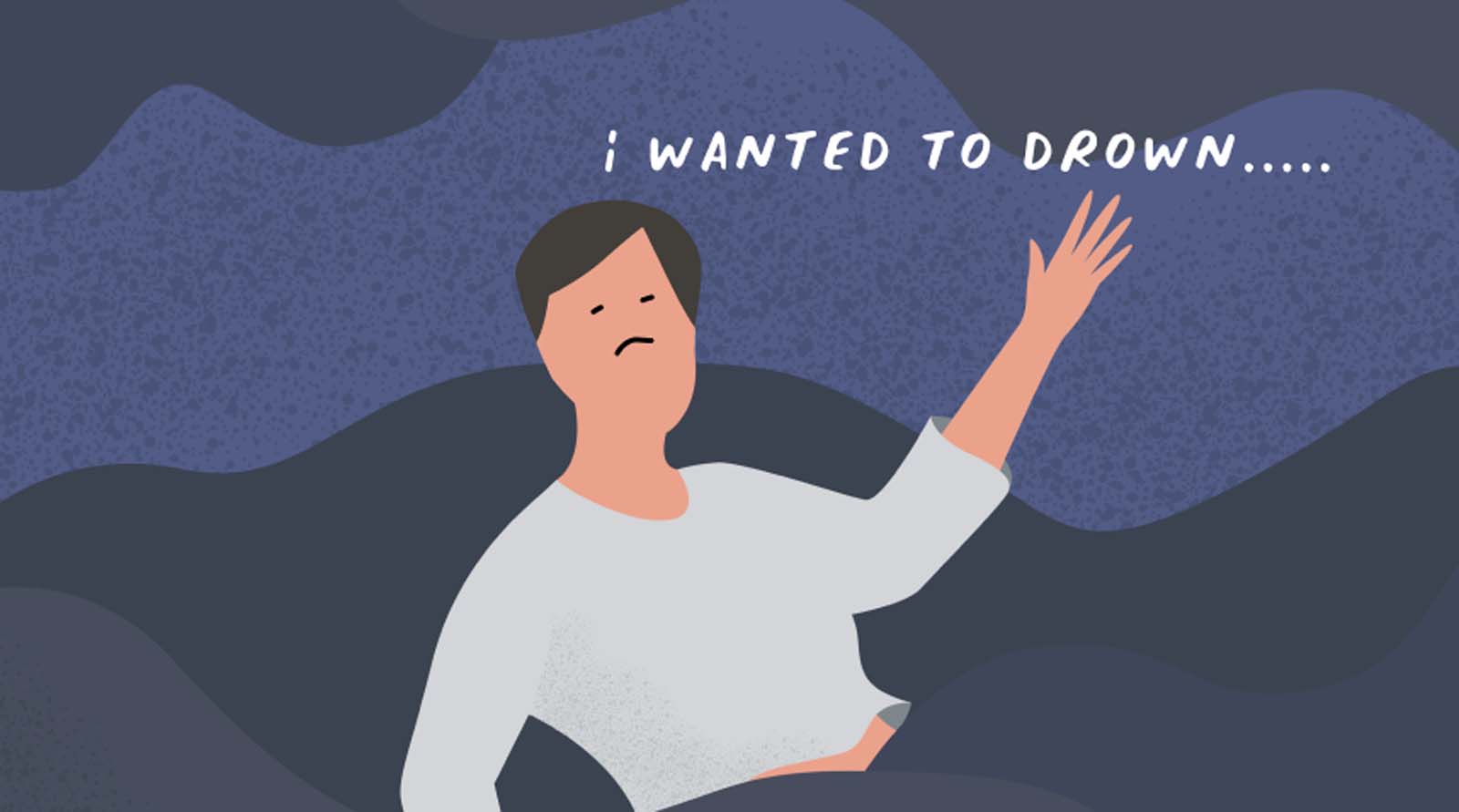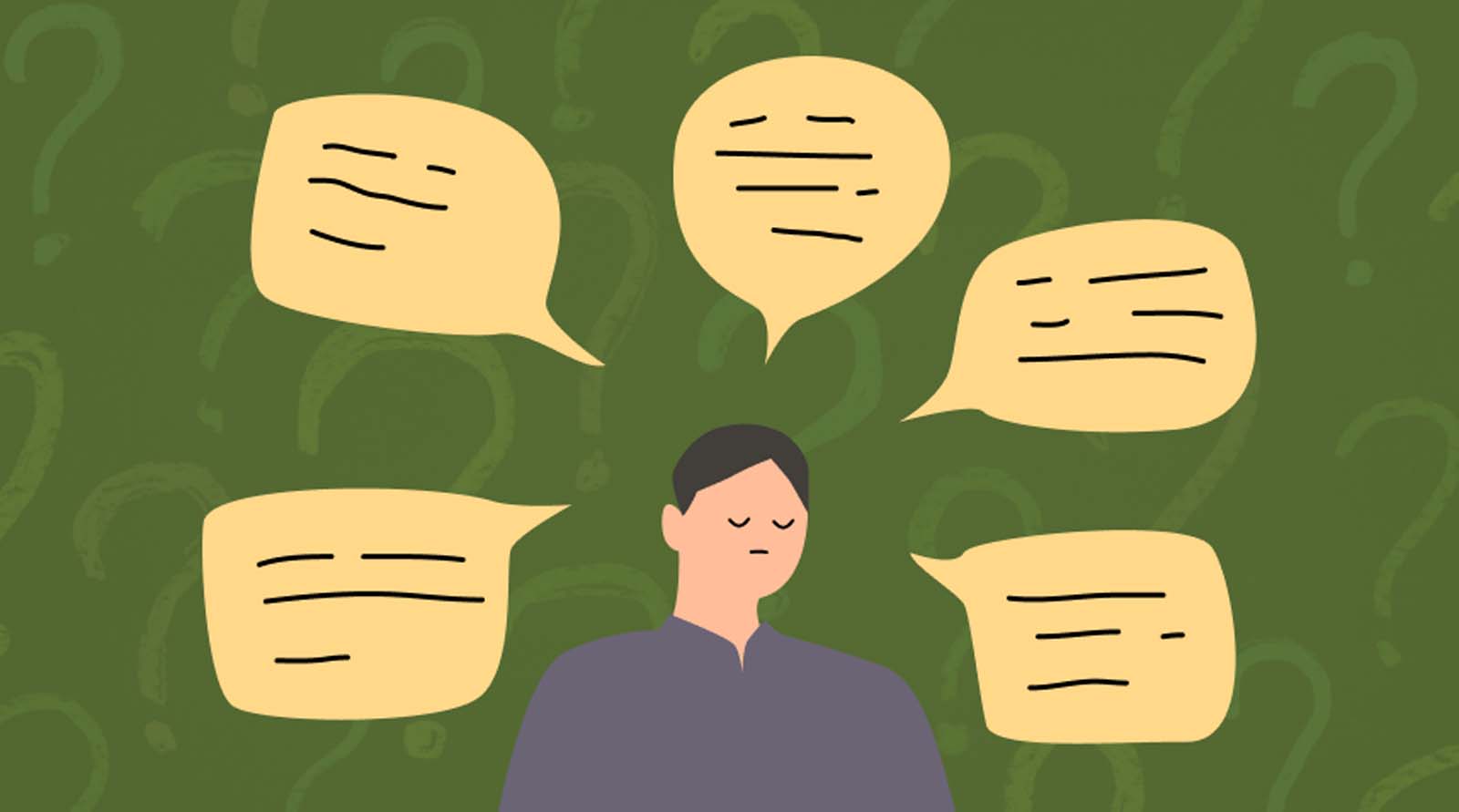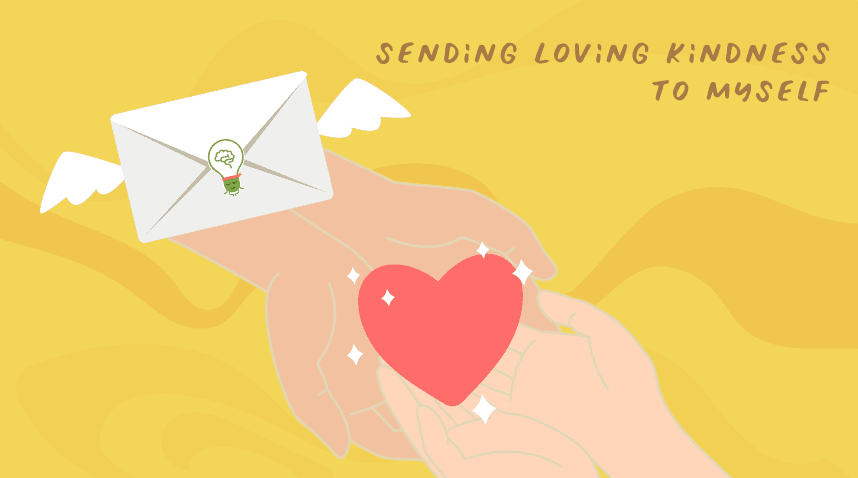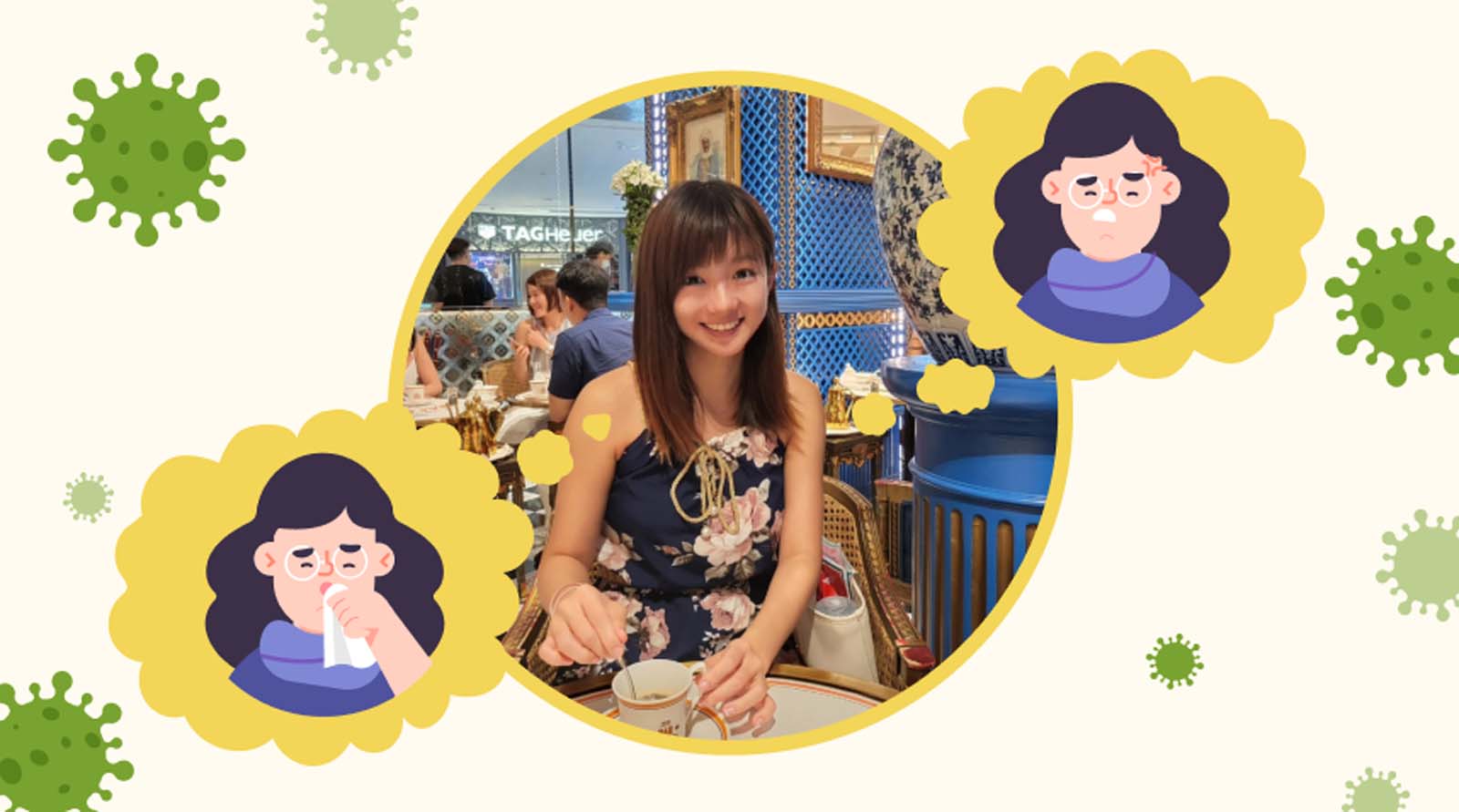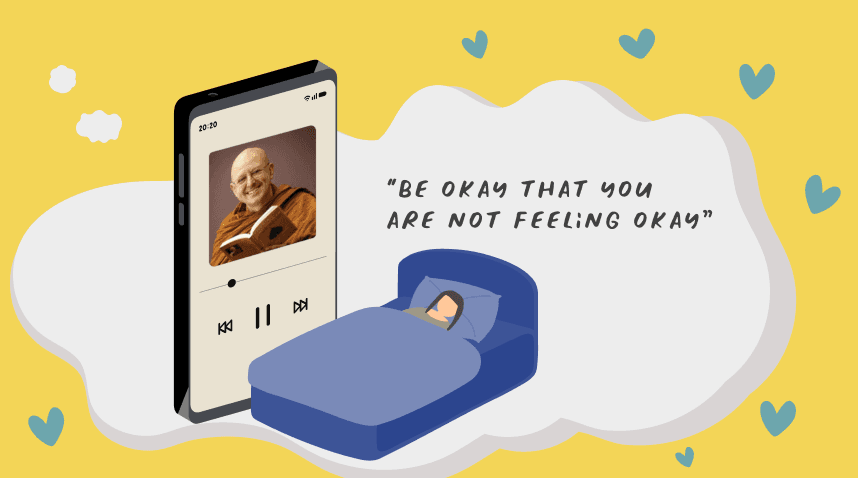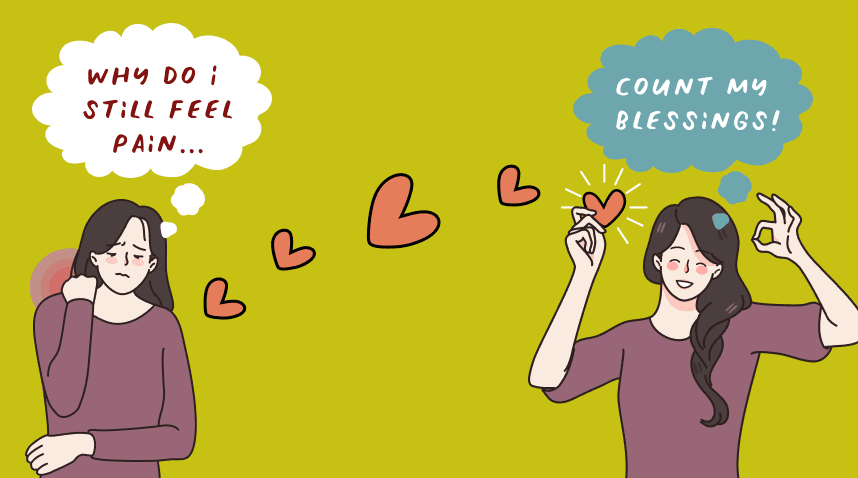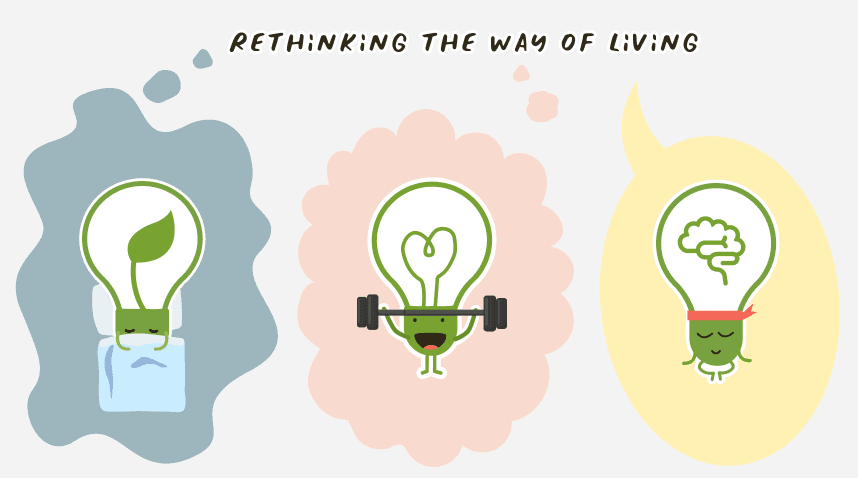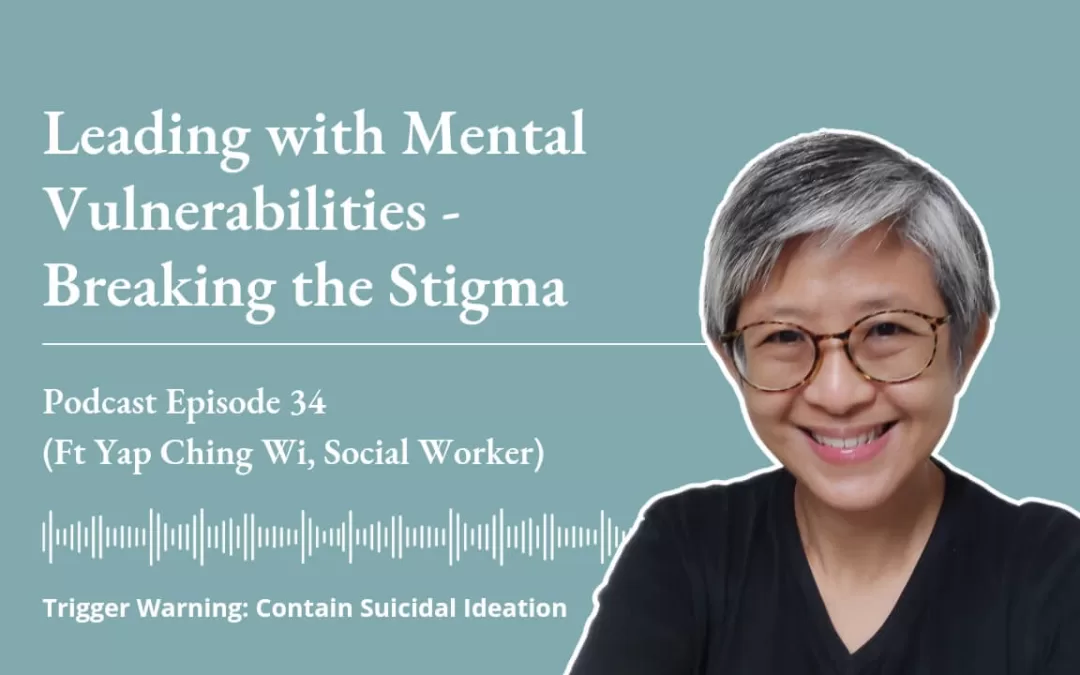
Ep 34: Leading with Mental Vulnerabilities
Transcript
[00:00:00] Cheryl:
Welcome to the Handful of Leaves podcasts. Today’s episode is very interesting because we will be talking about Buddhist leaders and mental illness. The aim of this podcast today is to shed light on the challenges and lived experiences of our friends with mental illness, especially on the unique challenges faced as leaders in the Buddhist scene.
Today we have a guest who will bring in a very unique perspective to this topic as she has personally navigated mental illness while also holding leadership roles. So let’s welcome Sister Ching Wi.
[00:00:35] Sis Ching Wi:
Hi everyone. Hi Cheryl. Thanks for having me.
[00:00:38] Cheryl:
Hi. Sister Ching Wi is a social worker with Aranya Sangha Dana Fellowship, a nonprofit that helps Buddhist monks and nuns, especially those living in the community. She’s also a facilitator who designed the Life Story Workshop for seniors and graduated from the London School of Economics and the National University of Singapore.
Can you share more about your personal journey with mental illness and how it has intersected with your leadership or volunteering roles?
[00:01:07] Sis Ching Wi:
Hi, Cheryl. I’ve been a social worker and because I benefited a lot from practicing the Dhamma, so I also try and serve the Buddhist community in any way that I can. This is actually the 10th year of my depression. It’s a very, very long journey. It started with me taking a break from work, I was just doing nothing. I happily thought that I was just going on a holiday, but then I didn’t realize that not doing anything made me have a lot of time to ruminate. Then I found myself starting to worry. You’re so used to working every month and seeing the paycheck in your bank account. So, these worries become bigger and bigger worries.
And then lo and behold, I was just spending my days on the sofa watching TV. It got so bad that even when I had to go to the toilet, I just couldn’t get out of the sofa at all. I just felt like it was so difficult to move my body. Sometimes people say, your body feels as heavy as a mountain, it really felt like that. I really had to force myself. So every day it’s very tiring mentally because it’s not like I’m just sitting there stoning away. My mind was super hyperactive. I couldn’t take care of myself. And I really had to force myself. But I still tell myself, okay, maybe being a social worker, this is just burnout. You just need to rest more.
So it went on for a few weeks and then one day I was just standing at my window. Suddenly I just caught myself thinking, most of us live in HDB Flats, when I looked down, suddenly the thought came, “Oh, actually it’s very easy to just drop down.” Then the next thought was, so how do you do that? Well, I guess I can push myself off my ledge and then I lose balance and I fall, or I can maybe just find a stool or a chair and step on it. Finding a chair will be easier. My chair is in the kitchen, so I turned and I walked towards the kitchen.
[00:02:54] Cheryl:
It was quite a serious thought in the sense that there was the intention of executing it as well.
[00:03:00] Sis Ching Wi:
There was even a plan. So after a few steps of walking into the kitchen, I realized that it was a suicidal thought. So that’s when I figured, okay, I can’t do this on my own. I went to see a psychiatrist and a counselor at the same time. And I started my healing journey from then on. But it wasn’t smooth at all because of my personality of being a perfectionist and a workaholic and all that, I would ask a psychiatrist, okay, so how long will I take this medication before I’m up again? Should we give it three months?
[00:03:30] Cheryl:
It almost seems naive like you’re thinking three months, but actually now in retrospect, it takes 10 years.
[00:03:36] Sis Ching Wi:
Exactly right. A good way of understanding depression, I like the model of BPSS, which is biological, physical, and psychosocial. I like this model because the focus is not just on taking medication and getting better, but I also have to look into the psychological aspects and social aspects. This helped me a lot. I had to figure out how to manage stress.
This is where mindfulness comes in and as a Buddhist already meditating, not a lot, but enough to help myself a little bit. It really made me see how I have some unhealthy thought patterns being a perfectionist. It came from wanting to do the best that I can. It’s fine to do the best that you can, but you’re not a machine. Where did doing the best that I can come from? So it gave me a chance to really investigate. It came from a sense of being responsible. Again, being responsible is a very good virtue, but to balance it, to be healthy, you must know how to draw boundaries.
You must have the wisdom of knowing at what stage I have fulfilled my responsibility, when I should let go and not blindly be responsible 100% all the way. In these 10 years, I had a chance to really look at my thought patterns, my mental habits, trial and error and figure out. It’s like moving into OS 2.0 from OS 1.0 that totally failed. And along the way it’s 1.2, 1.3. So it’s not just about curing my chemical imbalance in my head, about managing my emotions, taking good care of myself in terms of health, but also really examining, throwing away what doesn’t work for me in terms of my thought patterns and adopting and practicing good mental habits.
[00:05:35] Cheryl:
Almost like the mental hygiene, cleaning up the unhealthy ones, learning and relearning. Like you mentioned, you don’t get it right the first time. It’s like 1.1, version 1.2.
[00:05:44] Sis Ching Wi:
In a fun way I tell myself, okay, so now this is a game of how many times do you want to continue to run into the wall? Because I would have high expectations of myself to get better. Okay, the medication is working. So now, I’m eating better. Maybe in two months’ time, I can take on more work. Actually, I have experienced, whether I wanted it or not, different ways of letting go. And I think this is so precious as a Buddhist. It’s very easy to say, I want to let go of my troubles.
[00:06:15] Cheryl:
But how do you do it exactly. Yeah. So let’s delve into that a little bit deeper, it’s almost as though there are a lot of conflicting parts of your personality, because there is the part of perfectionism wanting to get everything right. But on the other hand, when you are facing a depressive episode, you will be on the side where you can’t even move yourself to do the most basic things like going to the toilet. When you’re a leader, all of these tendencies would come into play. So, how has it intersected for you personally, between having this mental illness with your leadership?
[00:06:49] Sis Ching Wi:
There are a few layers. It’s my inner work, and then of course, working with the team or the project. I remember right at the beginning I would get overwhelmed to the extent of not showing up. And this is so out of character, right? I try so hard. I just couldn’t. It’s a combination of dread, being very scared, being very weak. Basically, I just couldn’t get out of the house. And then I will look at the time, the meeting has started and I’ll be missing it. And then after that, I’ll feel so bad. The guilt, the shame and I eventually retreated to just not showing up at all, not answering phone calls. As long as my handphone has battery and there’s a blinking light, when I see the blinking light, I will break into cold sweat. So I just want the battery to be off. I was just like isolating myself.
But then I still continue to feel bad actively, because I know, tomorrow there’s this thing, and three days’ time there’s this thing and all that. But of course, friends and fellow workers, everyone was very understanding and people got really, really worried. And then I know people will get worried and that set me off into another spiral. Of course, in the midst of all these, friends couldn’t get hold of me. They started contacting my husband, my sisters and close friends. Then, people knew that I had depression.
[00:08:03] Cheryl:
So at that point, it was not public information yet.
[00:08:05] Sis Ching Wi:
Yeah, it wasn’t. Then people started passing messages back, to send me loving kindness, tell me not to worry. It made me more relieved. So I told the psychiatrist, you know what I discovered? When I went off the radar, the world did not collapse.
[00:08:20] Cheryl:
Wow.
[00:08:21] Sis Ching Wi:
And after I said that, I felt so relieved. I felt so relieved. So it’s not that I’m so egotistical, like the world revolves around me. But I was feeling so bad and I think I must have been beating myself up for so long, for not being able to perform all my duties.
So this term of being a leader, well, I guess you take on more responsibility. Part of the responsibility, at least for me, I always try to be hands-on. So then there’s this added responsibility of letting more people down. That was horrendous. Yeah.
[00:08:52] Cheryl:
Yeah. I think a lot of times leaders, especially in the Buddhist scene as well, people define leadership as basically being the person that is doing everything, doing the most. That can sometimes be a very heavy burden to lift, especially if you are already going through a very difficult moment in your life. But what you just shared is very powerful in the sense that sometimes leadership can be viewed as a shared responsibility amongst the communities, not just on your own shoulders. You are there, but also there are people supporting you there.
[00:09:30] Sis Ching Wi:
Definitely. In fact, I was already very blessed. One of my biggest takeaways was, thank goodness I didn’t have to do a lot of hands-on. So it wasn’t like I was the one who had the key to the Dhamma center, and then because I wasn’t there that night, people couldn’t attend the Dhamma talk. So it’s more at the planning level and all that. If we communicated enough and if we do proper planning, so what if somebody is down? The team just goes on and work gets done.
It really brought in the point that no one is indispensable. The leader must immediately think about leadership succession. It’s like day one of anything that you do, this notion of letting go is extremely important. It’s not just letting go of the duties. It’s not about being irresponsible, but it’s about can we find someone to shadow you? Can we work as a pair? Can we work as a team? And then somebody else can learn, the newer ones can learn, and the senior ones, can work themselves out of a job and go to the mountain and meditate.
[00:10:36] Cheryl:
So I’m curious, how do you juggle between a sense of responsibility versus a sense of shared community?
[00:10:44] Sis Ching Wi:
I think it’s mostly in our mental attitude. The responsibility and the job scope, you have to fulfill. But how can I try to be mindful of my attachment to the task at hand? If I’ve done it, I’ve done it. I don’t need to go back and be a perfectionist and ruminate. Can I let that go? Okay, I can. It’s an exercise in letting go. If this organization that I volunteer in or this project that I do, if we cannot achieve the objectives, then how? So, I’ve developed this habit of anticipating impermanence. There will be changes. And just being very clear to myself, okay what can I accept? Is there anything else that I can do? And that’s it.
I’ve gone through a rehearsal in my mind of the possible disasters. And when things happen I’m not caught off guard. In these rehearsals, it’s a chance for me to contemplate, how much do I personally, selfishly want this or am I seeing it too narrowly?
[00:11:39] Cheryl:
Yeah, that’s very wonderful. Thanks for sharing your reflections on this. What I take away is if someone is a leader who is struggling with mental illness, first is having that kind of self-awareness that this is my bandwidth, this is my capacity. And contrary to our ideas of taking on the whole world, on your shoulders, you can also understand that these are your boundaries. These are what you’re capable of and plan for how you can share these responsibilities. How can you give other people maybe an earlier heads up as well, so then you don’t have to feel so burdened by everything.
Then the second piece is that, where you’re possibly responsible for the task at hand, do your best and try to let go of whatever outcomes if you have already done your best and be at peace with whether the thing turns out good or bad knowing that you have already given it your all.
[00:12:33] Sis Ching Wi:
Thank you for the summary. I think a very important point comes to mind and that is the sense of ownership. I am not saying that I’m doing it fantastically well, but I know that it’s always important and I always try to do it right. If the sense of ownership is truly felt by most of us in the team, then it’s an organic thing. If the leader is out of action, everyone still has a shared vision, everyone still knows where we are going. So it becomes co-creation. It means that everyone brings in what is it that they want rather than it’s just a vision or goal by one or two people. Along the way, more or less we will achieve our outcome, especially being Singaporeans.
But the process is so important, whether we learn and we grow, whether we help each other to be more mindful, whether we are supportive of each other’s emotions. When you have disagreements and when people get hurt, do we as a team want to talk about it? It’s a way of supporting each other. The process is so important, especially if we are looking at voluntary projects, even if you’re paid nothing. I think a lot of times the stress comes from people misunderstanding us, miscommunication, not being able to share our passion, and not being able to contribute. So all this is about just the process of how can we help each other to achieve our own individual objectives as well as our collective team objectives.
[00:14:06] Cheryl:
And I think when individual contributors on the team are empowered, then that’s where we see more proactivity as well. That’s how the team grows in a more positive direction as well. With all the challenges you mentioned just now, how has that shaped your perspective on leadership? Do you find that it influenced the way you approach any positions that you hold?
[00:14:31] Sis Ching Wi:
Oh, definitely. The biggest lesson is in empathizing and respecting people I work with. Most people wouldn’t tell you they have had a hard day. They’re dealing with whatever that is happening in their lives. Most people are just responsible and they just wanna give their best.
So if we are not sensitive enough to catch people, these are the small little things, but extremely important things that we can do right by just checking in on people, making it a point to really get to know the people I work with. If there’s a change in their behavior or their energy, I can sense it. And developing a real relationship, just being authentic about it. We allow each other to offer support and even to take care of each other. That’s a huge thing that I’ve learned.
[00:15:20] Cheryl:
It seems that it empowered you to really be more compassionate to the people around you, especially in terms of building that personal, genuine relationship, seeing them as humans rather than just a person to get something done.
I’m also reflecting on the four Brahmavihārās that the Buddha taught us. One is loving kindness where you spread unconditional loving kindness to the people around us whom we are working with. Secondly, it is to have that sense of compassion to want to reduce their suffering.
I think these two things, in particular, are quite neglected sometimes when we are in the rush of getting projects done perfectly, or by a certain deadline. Sometimes we can forget these two pieces. It’s so important to always anchor ourselves that the person in front of us here is a human being, and we should wish for their happiness and to reduce their suffering as well.
[00:16:16] Sis Ching Wi:
Yeah. One point that I really wanna share is that the very basics of practicing Buddhism is to avoid wrongdoings, do good and purify our mind. So this notion of doing good, I used to not be able to understand. In Chinese Mahayana there is this 普贤菩萨十大行原品. It’s Samantabhadra Bodhisattva’s Ten Great Action Vows. One of it is 恒顺众生. It literally means to serve and to support all sentient beings, to help them as much as possible.
So then now that I think about doing good, in the course of us having the responsibility to get the job done, we have limited time. Sometimes we feel that it’s not so important to ask how everyone is feeling. Or if somebody doesn’t know how to be the administrator of Zoom, instead of taking the time to teach, you find somebody else who can.
But then if we were to look into doing good, if I take a bit of time to teach this person, then this person would learn something. This is such an important skill and this person can do a lot more, not just for the project or for the organization, but for his or her life. So it is about enabling and empowering people. So I’ll get smart next time. When I am planning the next project, let’s plan in time. Let’s plan this in as a task, so that we have the bandwidth. A project is a project, but you can build in small little tasks and goals along the way that we all can practice, we all can help each other to grow.
[00:17:56] Cheryl:
I really love that.
[00:17:58] Sis Ching Wi:
Yes, do good.
[00:17:59] Cheryl:
Yes. And it’s almost like if you set your mind on doing good, you’re intent on it, you would be able to find ways. You’re so smart in incorporating that into the project plan, empower this person, teach this person, put that as part of the to-do list. It’s so beautiful because then you are also helping another person. We help to nurture them to their highest potential and that creates a whole ripple of positive effects onto the community. Thanks for sharing.
[00:18:27] Sis Ching Wi:
Welcome, Cheryl. I really invite everyone to just try one small little initiative like that and when the project is done, everyone’s heart is closer to each other because I’m also rejoicing and celebrating your success. Not just in the final step of that project. Along the way the logistics person has to do this, the marketing person has to do that, but then I know I was journeying with you a lot more. So all the interconnection and all the rejoicing, it’s so beautiful. So please try it. Everyone just try it.
[00:18:58] Cheryl:
Yes. Let’s try doing that. For all the leaders who are listening here, try to intentionally put in an action step that you could do to help enable another person to learn to grow or to be nurtured. You mentioned rejoice as well, and I thought is so appropriate that rejoicing is the third Brahmavihārā . I shared the first two just now. The first being loving kindness. The second being compassion to reduce people’s suffering. And the third one is to rejoice to feel appreciation for other people’s success, joy and growth. The fourth one is the idea of equanimity. If everything fails, we practice that sense of equanimity, to see things as it is, that it is what it is. That’s the Four Brahmavihārās as well.
[00:19:41] Sis Ching Wi:
You frame my sharing in such a way that I think it comes across as so smart.
[00:19:45] Cheryl:
What you share is very valuable.
[00:19:48] Sis Ching Wi:
I think a lot of times equanimity, we related to letting go. The way that I eventually come to experience it is dynamic. It is not dead silence. It’s a dynamic process, there is also a timeline involved. There’s a duration involved. So equanimity as a state of mind, I can be mini equanimous and I can be super zen-out equanimous.
[00:20:14] Cheryl:
It is like a spectrum.
[00:20:15] Sis Ching Wi:
It is a spectrum. Earlier on I was talking to my husband and I said, I have to practice mindfulness to literally save my life because I need to catch all these illogical suicidal thoughts when they come up. It is quite similar to Cognitive Behavioral Therapy. When your eyes see something, it goes into your brain. It will be linked to a certain thought or a certain memory. Then, you will create a story in your head. And when the story is created, it seems so real. Sometimes certain feelings will come up and you may even want to do something about it.
Let’s say someone may see my very short hairstyle, which is my lack of mindfulness in communicating with the hairdresser. Somebody may think, I also want to have that hairstyle, maybe next time I can go and get that hairstyle. So from seeing me, you develop thinking,
[00:21:03] Cheryl:
…proliferations.
[00:21:04] Sis Ching Wi:
Yes. It may even lead to emotions and actions, I like this, or I don’t like this, and I wanna do something about it. So back to mindfulness and being equanimous. I realized that I have to be mindful and I have to manage myself in such a way that I don’t become too crazy high and I don’t become too depressingly low. For me, this is kind of like being equanimous. I just have to stay within a range of emotions. And in order to do that, I have to constantly be mindful. Then I realized that actually, this is a very good skill to have as I go about life, when I’m stressed, when I am in a hurry. I found my zone, I have to just keep on practicing to be in that zone. As a result, I’m more grounded, my mind is clearer. Whatever work I do, I can just be more attuned. I have more space to observe people, to be more considerate of how they are doing, to pick up if they are feeling low, things like that. This is my own interpretation and working model of equanimity. This is how I apply and I understand the Four Brahmavihārās.
[00:22:13] Cheryl:
Can you share what are some practical trainings or reflections that you do to help keep you within that healthy boundary?
[00:22:23] Sis Ching Wi:
Being a workaholic and a perfectionist, I had to try very hard to convince myself that I have to take it easy. After convincing myself to take it easy, I have to put it into an action plan.
[00:22:34] Cheryl:
The take-it-easy action plan.
[00:22:38] Sis Ching Wi:
Oxymoron. So how many percent of your action plan have you completed in taking it easy? Yeah. I’ve learned to just tell myself it’s okay that I don’t get it right all the time. Finally, I think what worked was to have a sense of fun and adventure. Let’s treat it as a game. If I can catch a negative thought, yay! What do I reward myself with? So there are a lot of constant opportunities to reframe and to practice self-compassion. When I decided to see this as a fun thing, I finally took off. I finally started to really incorporate a lot in my life. Yeah.
[00:23:16] Cheryl:
So in the Take it Easy action plan, there are some guidelines if anyone wants to build up their own action plan. Reframe. So if your habitual tendency is to get angry, allow yourself to think of alternative ways about this. What can I do other than get angry? What are some other things that I can put in instead?
Second is to make it fun. Try to catch yourself. Try to notice how many times you have a negative thought or how many times you go into unhealthy coping behaviors. And third is to practice self-compassion. Occasionally indulge in a healthy amount of potato chips or whatever else, not indulge until you get a stomachache. But get some form of harmless fun to your life.
[00:23:56] Sis Ching Wi:
Along the way, I think small little victories, I celebrate. Neuroscience theories will tell you, if you celebrate, you’re developing your neural pathway, you are growing it. So if I pay attention to good things, then the good neural pathways will grow. If I pay attention to bad things, then I’m just sabotaging myself. So then celebrating becomes very important to seal it in. I went on this whole spiel about, look, you’re a responsible person. You are Buddhist, so you don’t celebrate in an indulgent way. Don’t be so frivolous and all that. Hey, wait a minute. Oh yeah, hey, I caught it! In this ongoing process, I’ve also gotten to know myself a lot better.
I’ve also gotten to see my ego. We all have this vanity, of wanting to present the best of ourselves. After I try this and that, and bang my head against the wall, there comes a point where I go like, oh, I forget it. This is just too tiring. I just let go. So I keep letting go, I don’t care how people think of me anymore. This is a healthy kind of adjustment. The whole idea is you become more and more relaxed. You wanna take it easy. Eventually, I got somewhere after years, and When I saw people behaving in a certain way that I used to behave, that empathy and compassion came out. But then I quickly remind myself, Hey, remember you’re a social worker, it means that there’s a tendency for you to not respect your own boundary and go and help save the whole world. Right? Anyway, these thoughts we’ll always have in our heads, but we don’t have to entertain them. But then I’m able to see people struggling, and it just makes it so much easier to connect. The empathy of just wishing somebody well, just smiling at that person.
I will admit that it’s really not easy, just bravely seeing yourself for who you are, but it results in a lot of beautiful things in my life now for myself and for people around me. So it’s totally worth it. I’m sure even for friends listening who are not diagnosed with depression. All of us have got bad days and all that. But just keep on working on ourselves. It will come to a stage where we become better and when we are better, we become more attuned to people around us and we can start to help people around us. Then it just becomes a cycle that goes on and on. Yeah.
[00:26:03] Cheryl:
And like Thich Nhat Hanh always says, the more we are in touch with our own suffering, then the more we can be in touch with other people’s suffering. That’s where true compassion can spring up. Because we understand it for ourselves, we truly know how unpleasant it is. When we touch the core of it, then we are also able to see it in everyone. And in that sense, we see, despite our colors, our perspectives, our views, underlying all of these things, we are one and the same in terms of our quest for happiness, our quest to be free from suffering in our own ways.
[00:26:41] Sis Ching Wi:
So beautifully said.
[00:26:45] Cheryl:
And Sis Ching Wi, I really want to thank you for coming on this show. It’s very brave of you because there are a lot of people out there suffering from diagnosed mental illness or even mental illness to a lesser degree, but still struggling. And I think that by you coming up here today to speak, you’re also speaking for all of them and of course everyone else who’s keen to understand a little bit more. Would there be one message or word of encouragement that you would like to share with the people who may be listening and struggling silently?
[00:27:18] Sis Ching Wi:
For all of us who are struggling, just keep trying. Even if it’s just about managing to get a glass of water for yourself. It’s not about always having progress all the time or to achieve big milestones. As long as we don’t give up, we are trying, as long as we are breathing, we are trying. So as long as I just tell myself I will keep trying, that’s it. That’s my project.
I would like to invite everyone out there, be it you are a leader or team member, to see if we can hold space for each other. Very simply put, if you can see that somebody is struggling, then there are some little acts of kindness that we can do. Holding space also means, if we see some toxic behavior, then we should call it out. If a leader is too demanding, then can we communicate more with each other so that at the end of the day, we don’t end up creating more harm to each other as an operating principle. And I’m sure there’s a lot of different context and all that. So calling out toxic behavior may be the more intense kind of action. But if we see it as a spectrum, if we see unkindness, are there ways that we can try again and do it in a different way?
If we can all try and put this at the back of our mind, to always hold space for each other and to always make sure that we take care of each other, just as how you want to take care of yourself, this will have a very good outcome for ourselves and for people around us.
[00:28:55] Cheryl:
And like the Buddha said in the Karaniyametta Sutta, like a mother loving their only child, that’s how you should cherish other people as well and view them as precious or treat them with that form of kindness and gentleness. Thank you so much, Sister Ching Wi.
And for all of our listeners here, I hope you enjoyed listening to our conversation. If you like this podcast, please like, give us five stars and stay happy and wise. See you in the next episode. Thank you.
Resources:
Special thanks to our sponsors:
Buddhist Youth Network, Lim Soon Kiat, Alvin Chan, Tan Key Seng, Soh Hwee Hoon, Geraldine Tay, Venerable You Guang, Wilson Ng, Diga, Joyce, Tan Jia Yee, Joanne, Suñña, Shuo Mei, Arif, Bernice, Wee Teck, Andrew Yam, Kan Rong Hui, Wei Li Quek, Shirley Shen, Ezra, Joanne Chan, Hsien Li Siaw, Gillian Ang, Wang Shiow Mei.
Editor and transcriber of this episode: Cheryl Cheah, Susara Ng, Ke Hui Tee

